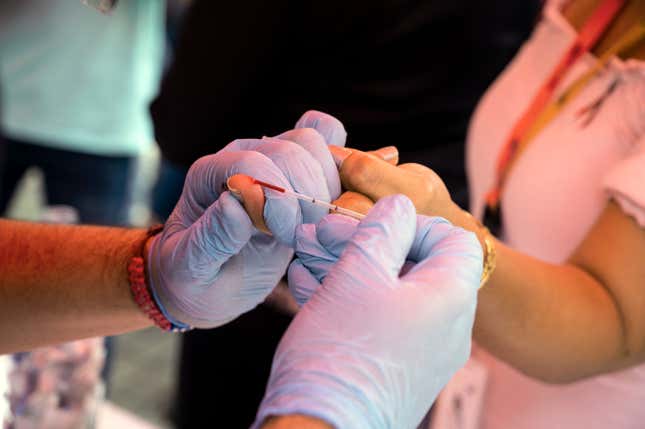The bill still maintains provisions of the statute in question that criminalize endangering another person through transmission of non-airborne infectious or communicable diseases; but it no longer specifically targets people living with HIV/AIDs and sexually transmitted infections.
New Jersey state Sen. M. Teresa Ruiz, one of the co-authors of the bill, told Insider NJ the passage of S-3707 “is a step in the right direction of… removing the stigmatization that surrounds individuals living with HIV.”
“Over the years, there has been criminalization targeting HIV-positive individuals, rather than those who are intentionally harming others,” Ruiz said. “The criminal code is meant to punish actions that harm others, not discriminate against people living with a chronic health condition.”
Some may be shocked by the fact that many states still have laws on the books that essentially criminalize people living with HIV/AIDS, who are more likely to be LGBTQ, and particularly trans, Black, and Latinx. But according to the CDC, this isn’t uncommon: The majority of U.S. states (35) currently criminalize HIV/AIDS exposure. The Movement Advancement Project reports that at least six states have laws that also specifically enhance sentences for sexual offenses if someone has HIV/AIDS, or require those who transmit the virus to register as sex offenders.
The CDC notes that sentencing for those who face criminalization varies widely across states — some have a maximum sentence length of life in prison, and others have maximum sentence lengths that are less than 10 years. Ultimately, all sentences and criminal charges are discriminatory and punitive toward queer and trans people, and particularly those of color, who already face greater risk of criminalization and incarceration. Criminalization of HIV/AIDS has been wildly counterproductive to actually providing the resources to protect people from contracting the virus, and ensuring those who have HIV/AIDS can get the care they need.
It’s also worth noting that while HIV criminalization laws have been justified through deeply problematic comparisons of HIV transmission with sexual assault, LGBTQ people — particularly those of color — are significantly more likely to experience sexual violence and abuse than their cis, straight and white counterparts.
New Jersey now joins at least nine other states that have modernized or repealed their HIV criminal laws since 2014, including California, Colorado, Michigan, Missouri, and North Carolina, per the CDC. There have also been significant strides to help prevent HIV/AIDS through daily PrEP pills, or the newly FDA-approved drug Apretude that comes in the form of an injection.
None of this progress would have been possible without the pioneering activism of queer and trans people, who were ignored and punished by the public health community including the CDC for decades, resulting in incalculable human loss. That so many states continue to criminalize and punish those living with the virus to this day serves as a harrowing reminder of how much work remains to be done — but legislation like S-3707 in New Jersey marks an important step in the right direction.
“I am thankful to the advocates who brought this issue to our attention, not only for leading the way on solid public health policy, but also in serving those in need in New Jersey,” New Jersey state Sen. Joe Vitale, another co-author of the bill, told Insider NJ. “The current law serves only to criminalize some of our most vulnerable populations, primarily those with HIV, dismissing what we know about the treatment of HIV and how it is and can be transmitted.”

